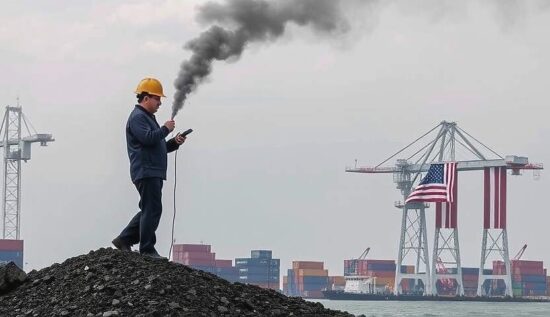China has imposed tariffs on a range of goods and raw materials from the US, effective from next Monday. According to a decision by the State Council of the country on Tuesday, coal and liquefied natural gas from the US will be subject to a 15% duty. A 10% tariff will be applied to crude oil, agricultural machinery, large-displacement vehicles and pickup trucks. A complete list of the goods subject to the additional tariffs was published by the Chinese Ministry of Finance on its website in two annexes.
The move was explained by Beijing as a response to the decision of US President Donald Trump to impose a 10% tariff on imports from China. The US actions were described as a serious violation of the rules of the World Trade Organization by the Chinese Ministry of Finance. Washington, it was said, was not contributing to the solution of its own problems, but rather harming cooperation with Beijing in the fields of economy and trade.
According to the Chinese Embassy in Washington, the government has taken “completely justified and justified” countermeasures in accordance with current laws and regulations, as well as international law norms. The diplomatic mission also noted that China has filed a complaint with the World Trade Organization.
The embassy condemned the US decision, saying the tariffs were imposed “under the pretext of the fentanyl problem.” China, it was emphasized, is committed to a hardline anti-drug policy, while fentanyl is a problem of the US.
“The US should address its own fentanyl problem and solve it and appreciate China’s goodwill, rather than threatening other countries with arbitrary tariff increases” the embassy said.
On February 1, Trump signed an order on tariffs for goods from Mexico, Canada and China. According to the US President, the move is aimed at combating illegal migration and the smuggling of the drug fentanyl. Mexico and Canada agreed to a delay of the tariff measures, while China’s tariffs took effect on February 4.





